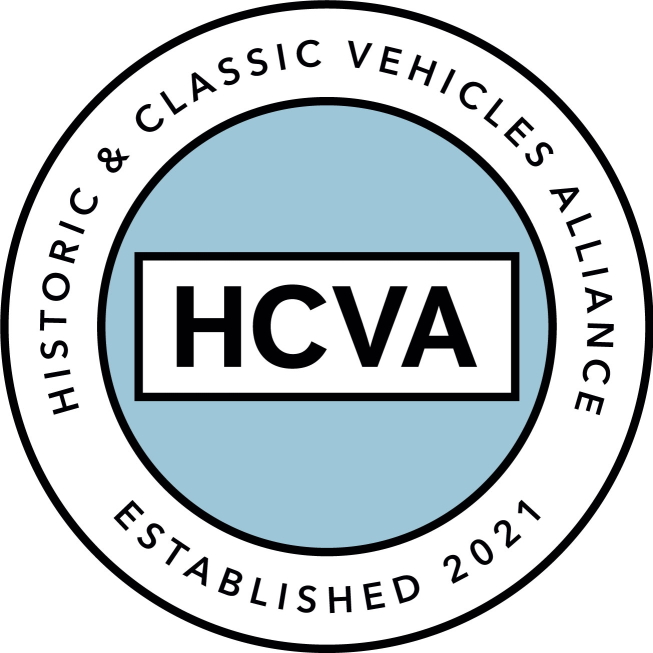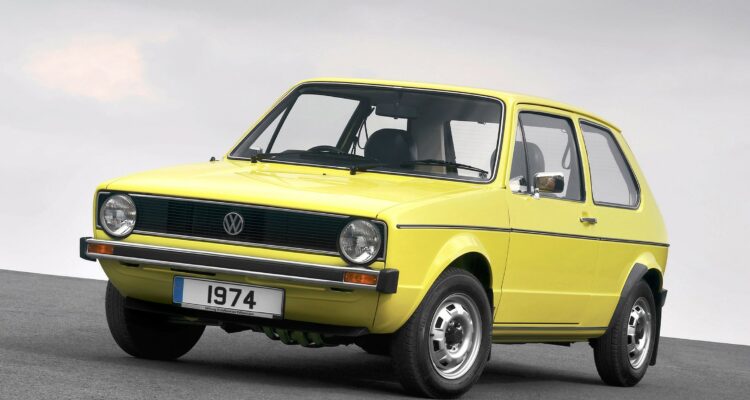Ten Questions – David Meek, Chair of the HCVA
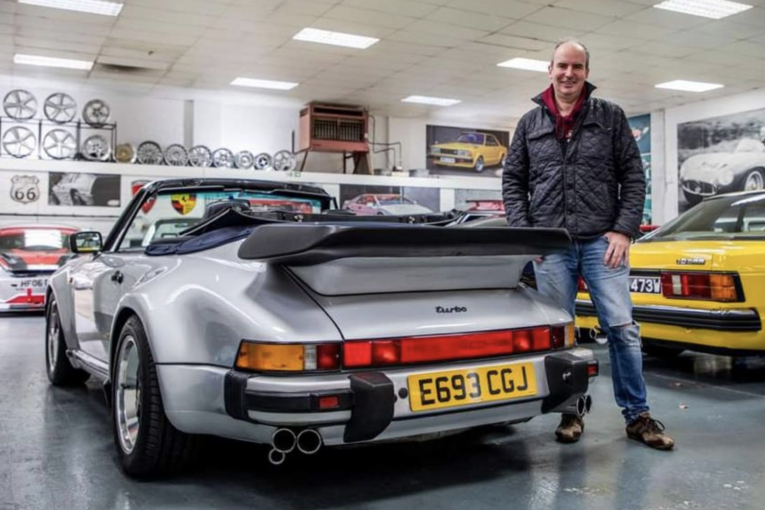
If you’ve been keeping up to date with our magazine here at Car & Classic then you’ll know that we are proud to be a founding partner of the HCVA (Historic and Classic Vehicles Alliance). We’ve put our money where our beautifully polished grille is, aligning ourselves with its principles and signing up to a fully accountable code of conduct in order to help preserve the future of classic and historic vehicles for everyone, something that is obviously very close to our hearts.
Established in 2021, The HCVA – through collaboration, transparency, and proactive lobbying – seeks to increase awareness and education of the historical vehicle sector’s economic and social benefits, to ensure those responsible for policy and regulation are challenged and held accountable, to promote sustainable innovation and technologies, and to ensure the HCVA member community is engaged and confident that their voices will be heard. Recently appointed as the new HCVA Chair of the Board, David Meek – a lifelong classic car enthusiast – says: “I am delighted to bring my experience to work with our members, policy makers and the wider industry”. David will oversee the overarching operations of the HCVA, including its strategic objectives, public engagement, and growth, working steadfastly to realign strategy and support Alliance members alongside four new core pillars; environment and sustainability, education and skills, regulation and policy, and the HCVA community.
David’s appointment forms part of a wider focus for the HCVA, as the Alliance seeks to a) attract newer, younger audiences and increase engagement and collaboration within the classic car sector, b) lead the drive for innovative, sustainable fuel and technology solutions, and c) ensure policy makers are aware of the challenges faced by HCVA members and the wider historic and classic car community. David adds: “In the face of an increasingly challenging public and political lack of awareness surrounding classic cars, the role of the HCVA has never been more important. By focussing on our four core pillars, we will further strengthen the case for the historic and classic car sector, one that over the last 25 years has transitioned from enthusiasts and hobbyists to a multi billion pound industry. Our role is to drive change and broader awareness to promote the considerable opportunities within the sector, whilst representing our members”.
It certainly sounds like David is the right man for the job then, so we sat down with him to dig a little deeper and find out what the future holds for the HCVA, as well as the classic and historic vehicle industry as a whole.
1) Firstly, congratulations on your new appointment. The Historic and Classic Vehicles Alliance provides an incredibly important service within the industry – which we fully support here at Car & Classic – but for those that don’t know, can you summarize that work in your own words?
Thank you for your kind words and indeed for your continued support at Car & Classic. I was delighted to accept the board’s offer to chair the HCVA when they approached me earlier in the year.
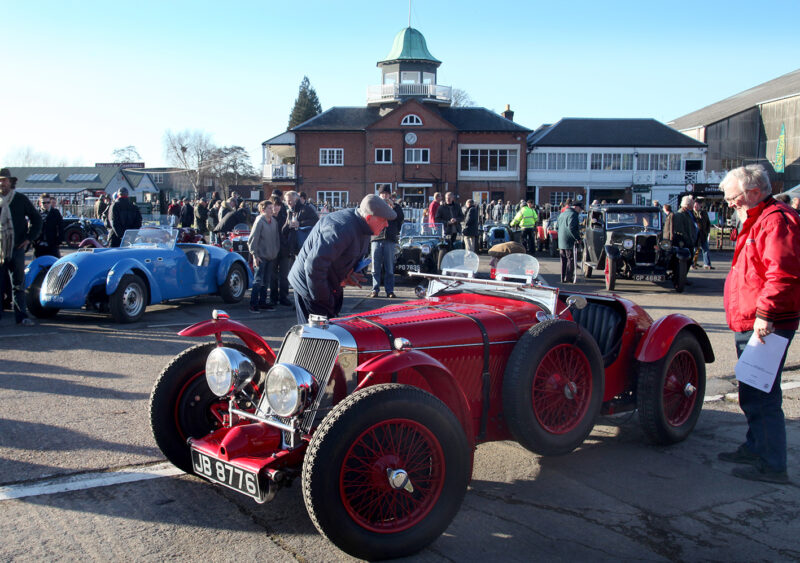
The organisation was formed two years ago to represent the trade industry across the historic and classic vehicle sector, with the backing of an army of supporters and enthusiasts who use their services. As the sector is made up of hundreds of SMEs rather than the large benchmark companies that can be seen in other sectors, it is important this £18billion asset of the UK economy is better represented and understood.
HCVA works to ensure that all generations enjoy the benefits and opportunities it provides, that we collaborate with those responsible for policy and regulation to facilitate a better understanding of the implications of their decisions, to educate and guide on innovation such as synthetic fuels and last but not least, to provide an effective community and network across the industry.
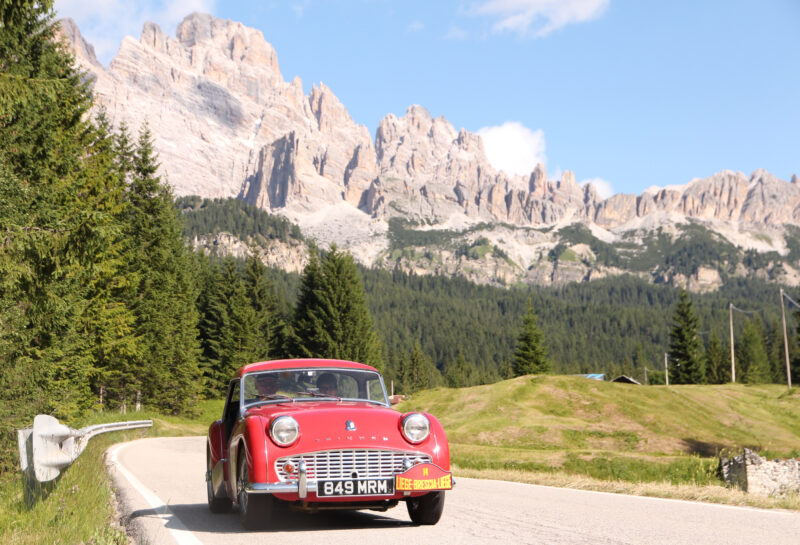
2) Can you tell us a little bit about your background? What skills and experience will you be bringing to the table as the new Chair of the Board?
Having spent a long time in the finance industry, I stepped out around seven years ago to pursue a ‘portfolio’ career, applying my knowledge and experience across different sectors and geographies to a wider audience, as well as to learn new skills myself. I have operated at board level in global public and private companies, membership organisations and charities, with experience helping balance the interests across stakeholders, from sovereign wealth funds to central governments, shareholders to customers and end users.
I am a firm believer in the need to balance entrepreneurial flare and ambition with a framework of governance and risk, which in my experience maximises the opportunity for success.
3) You mention that the HCVA will be focussing on and working with four core pillars in mind, one of which is education and skills. What can you tell us about these principles and how important is it to get younger generations involved in the industry?
When I ask a young person about the classic car industry, they tell me about their grandfather covered in oil in his garage ‘back in the day’, seeing it as an old person’s hobby, rather than a career opportunity.
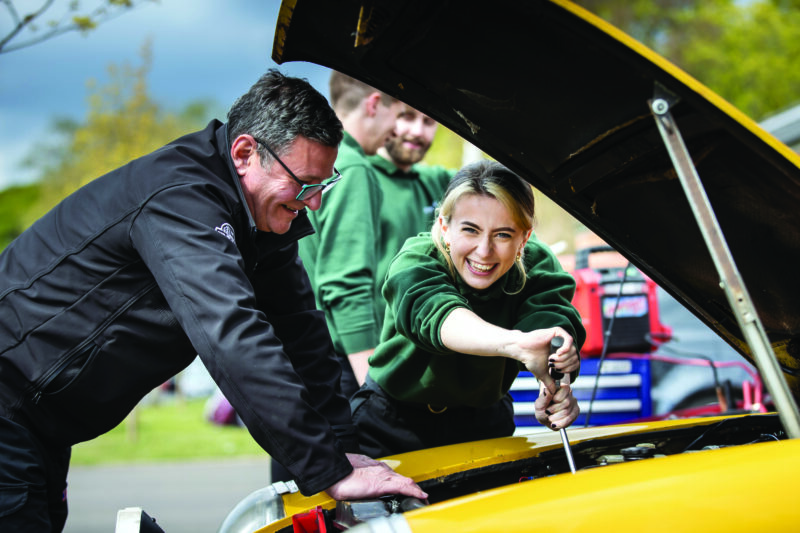
We’re keen to increase understanding around sustainability and innovation within the sector too, both very important factors in the considerations of our younger generation. Perception, in this case, is very different from fact, especially when you consider the career, sustainability and environmental perspectives. In terms of career, the industry supports over 130,000 people, in management, logistics, operations, innovation, design, marketing, sales, business development and many other disciplines, in addition to those in engineering with which most are more familiar. The HCVA is working on improving this knowledge and understanding, encouraging academy programmes, apprenticeships and corporate sponsorships. An important consideration for the younger generation is also around future prospects and changes in circumstances, so the education of the transferable nature of this industry’s skills to other professions is important to appreciate.
4) Another of the four pillars is environment and sustainability. We’re sure you’re aware of the synthetic fuels video that we filmed for our YouTube channel which is currently sitting at nearly 190K views. It’s clearly a topic that is close to many people’s hearts, including ours. What’s your take on the future of e-fuels and what part will the HCVA play in that future?
We are all familiar with electric vehicles, the huge infrastructure roll out and the political support for the same. HCVA is certainly not against EV, but what is important is the appreciation and recognition that technology and innovation evolves. What might look good now may not be the ultimate solution, but one of, or part of, the journey to find it.
It is therefore important that policy makers keep an open mind and don’t become blinkered to only see the EV solution. Synthetic fuels are a perfect example, products are continuing to progress significantly over recent years and we are seeing new products being tested and supplied on multiple levels in the classic and historic sector now, including dedicated events to highlight their effectiveness.
They are a work in progress and there’s still work to be done, but the narrative is important and we need to ensure stakeholders are engaged and supportive. The HCVA is working on a number of initiatives in this pillar which will benefit both the industry and the wider public to help their understanding and appreciation of these innovations. More to be announced on that in the near future, which I look forward to sharing with your readership.
5) Speaking of the fate of the internal combustion engine, what are your thoughts on Germany’s push back against against the European Commission’s proposed phasing out of vehicles powered by internal combustion engines by 2035, as well as Ferrari’s decision to continue making ICE engines past that date, with CEO Benedetto Vigna recently claiming that it would be “arrogant” to dictate to customers what they can buy?
One of the challenges of our planet’s environmental preservation is that many of those charged with the responsibility for key decisions across the globe are working to their own local agendas and one of the reasons why global resources are not necessarily being applied as effectively as they could.
Having attended COP26 in Glasgow, it was an encouraging series of meetings with commendable goals and policy alignment, but in reality change remains too slow. An example of effective global collaboration has been the Covid-19 pandemic and the vaccine development.
Climbing off my soap box, 2035 is a long time from a policy maker’s perspective, with individuals, governments and priorities changing multiple times over the next 12 years. This is why HCVA and representative bodies in other industries must rise above political agendas and focus on the longevity and value of those businesses, the economic impact and the employment and well-being they add to society.
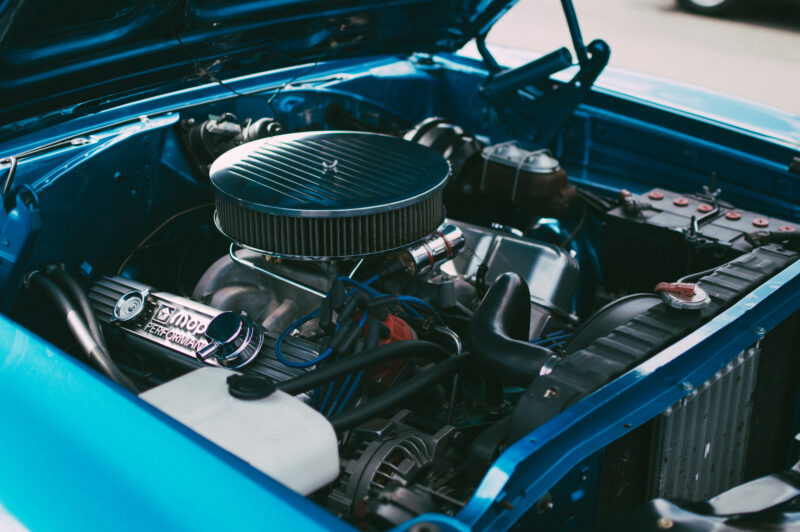
The internal combustion engine and the innovation driving new solutions such as viable sustainable fuels is already advancing rapidly and in the coming decade we can be confident that, whilst EV will remain important, so will other solutions to ensure the sector will be sustainable and ICE remain an important aspect of our industry.
6) Being a lifelong classic car enthusiast yourself, not only are you the right man for the HCVA position but you’re also very much one of us. Can you fill us in on some of the cars you have owned over the years? Do you currently have any classics tucked away at home and what’s your daily driver? Full disclosure: you will be judged accordingly…
Absolutely, and like many people I wish I’d kept my first car, in my case a Mk1 Ford Escort. I got the ‘green’ resprayed red and enjoyed managing the jump start every other day in winter! Have to say that given the rust in the chassis even back then, it would unlikely have been in the ‘survivor’ camp!

I have enjoyed many cars over the years, a Mk III 2.0 Ford Capri was a pride and joy and the Capri Owners Club was my first car club and club event. I remember at that event the couple who pulled up next to me locked their keys in the car and were quite shocked when I broke into their car in 30 seconds using some parcel chord!
My first ‘flash’ car was a Porsche 944 which was delivered on the memorable date of 8/8/88, but frankly I was far too precious about it and didn’t drive it enough! Not so fast ‘highlights’ included a Talbot Avenger and Renault Espace! However, I have been lucky enough to enjoy some fine Italian and German engineering too, a number of which are still ‘tucked away at home’. My daily driver is a 13 year old BMW 325i Convertible. I don’t want to tempt fate but it has served me well and it is very versatile, especially when the roof is down and you’re moving house!
7) If you had to pick one of each; a passenger (living or dead), a car and a route to drive, what would they be?
I was once asked, if I was a sportsperson, who would I be and why? I replied; Michael Schumacher. This was at the height of his Ferrari years and when asked to explain my ‘predictable’ answer as a ‘car person’, I let them know it wasn’t Ferrari, or speed, but his attention to detail. His ability to know the rule book and prefer to ask forgiveness than permission, both on and off the track, set him apart from others … not withstanding his incredible driving skills of course.
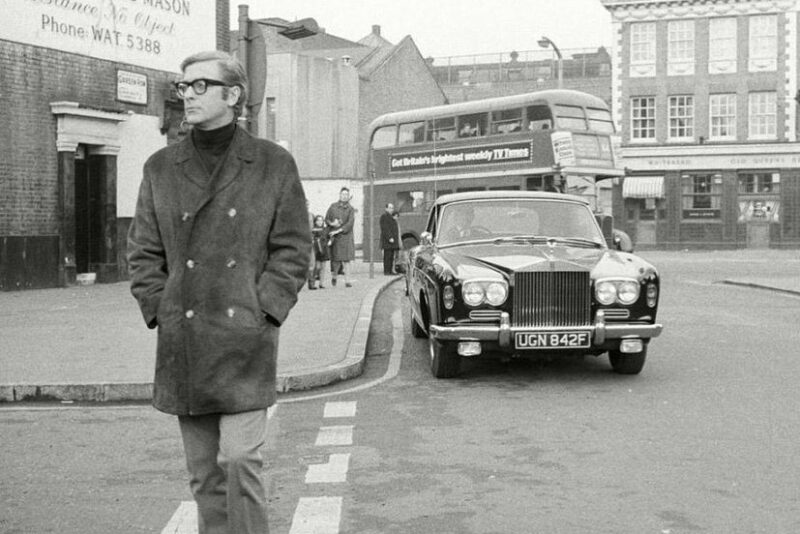
However, to answer your question, I would love to go for a drive with Maurice Micklewhite, who formally changed his name a few years back to his better known stage name Michael Caine, after getting bored of being stopped in customs when officials would not accept his real name! Such a fascinating career from such humble beginnings, with over 150 movies and working with so many other legends, it would need to be a very long road to cover even a fraction of the stories he could recall. From Epics like Zulu and the Eagle has Landed, to classics such as Educating Rita and, of course, the original Italian Job. Although I believe all the originals from the movie were destroyed, we would probably have to be in a mk1 Mini Cooper … the only remaining questions whether it would be red, white or blue?!
8) Where do you hope to see the HCVA in the next ten years? Are there any particularly mammoth changes or improvements you would like to see implemented?
We are currently completing the foundations to ensure we have a scaleable organisation that confidently represents the historic and classic car sector, operating in partnership and collaboration with the other great causes and representative bodies in the industry.
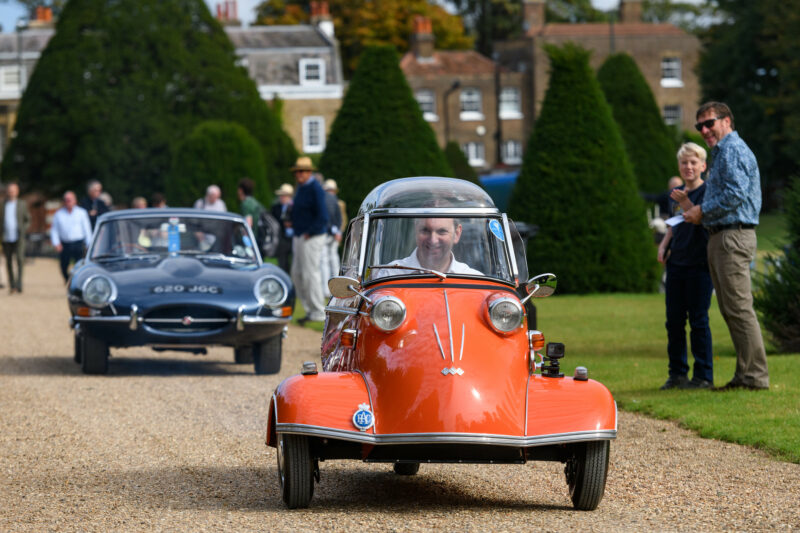
HCVA is the representative voice of the industry which advises and guides decision makers with the necessary expertise and insight and needs to be strategically aligned with all parties. We8) Where do you hope to see the HCVA in the next ten years? Are there any particularly mammoth changes or improvements you would like to see implemented? will help drive innovation by encouraging investment in people, finance and education and allow a level playing field that enables small and large businesses to prosper and increase the sector’s societal and economic value for the benefit of all. A general lack of understanding or appreciation of these values must be addressed, so that everyone can embrace the evolution of change and opportunity.
9) What can people do to help get involved with the Historic and Classic Vehicles Alliance, whether it be as an individual or a business?
We have just refreshed our trade membership categories and improved their value for money, ensuring full transparency. Every member has an equal voice and input to what we focus on through our advisory group, and of course access to valuable members only resources.
Similarly, for individuals joining us is a straightforward and a simple process via a few clicks on our website. In addition to many web-based resources, both public and member only, we are working through some great new initiatives to further advise and educate. These complement our existing benefits, such as exclusive opportunities to display cars and enjoy complimentary event access.
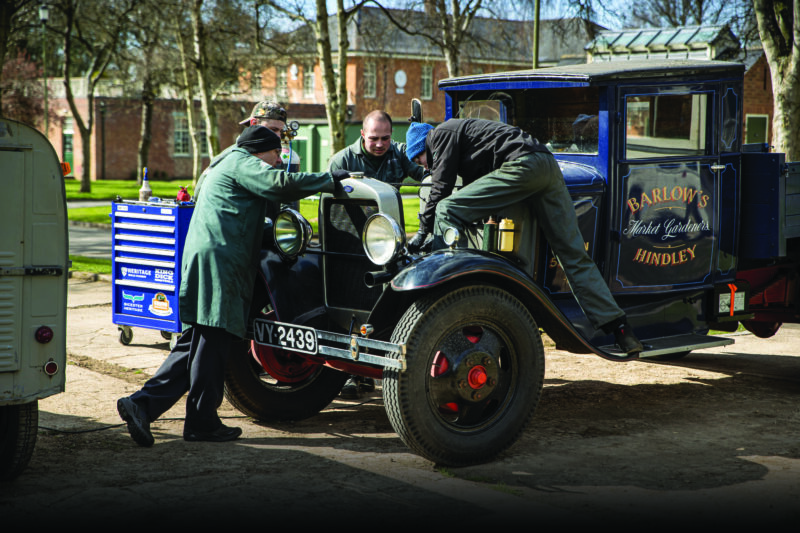
As a not-for-profit organisation we exist to serve our members and the support given is essential for our continued growth and success, so thank you to our membership and we welcome everyone to join us on this journey.
10) And finally, how do you see the future of the classic car industry as a whole taking shape over the coming years?
One thing that is clear is that everyone has an opinion on almost everything and that the future will be shaped by those innovators and policy makers not currently in their respective roles. The great thing about the classic car industry is that it evolves, by definition, every day, as new cars become older and eventually classics. Tesla began production 15 years ago so they are heading in that direction, hopefully with some long life batteries available too (!) and let’s not forget the first electric car and patent was some 125 years ago.
The point is that the sector’s future is as much today as it is in the past and why the industry must recognise and embrace innovation and involve all generations in an inclusive and enthusiastic way.
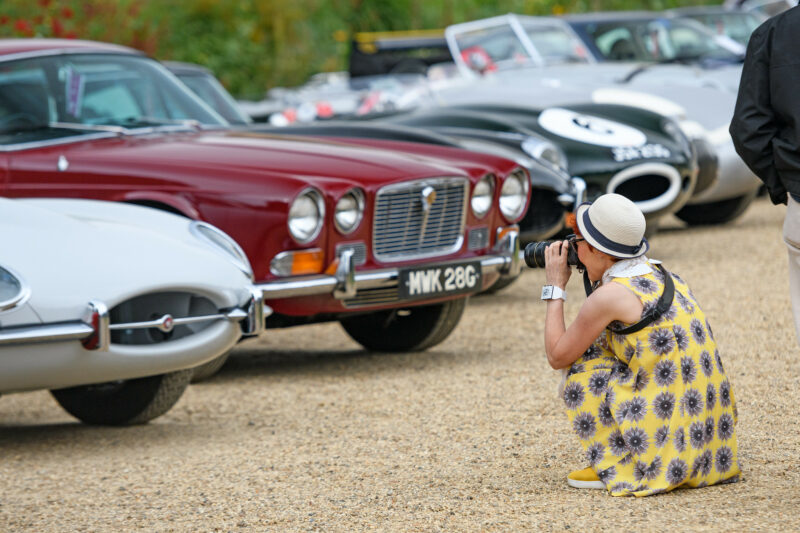
As can be seen at many car shows, the quality and technology to keep vehicles running, be they barn finds, classic originals, fully restored or modified, continues to improve and creates employment and enjoyment for many. Embracing change is essential, as is addressing the unexpected consequences of policy or regulatory decisions.
HCVA exists to work with all our stakeholders to recognise and promote these needs, ensuring that classic cars continue to increase the economic benefits to the UK on a sustainable basis and add to the enjoyment of the wider community.

